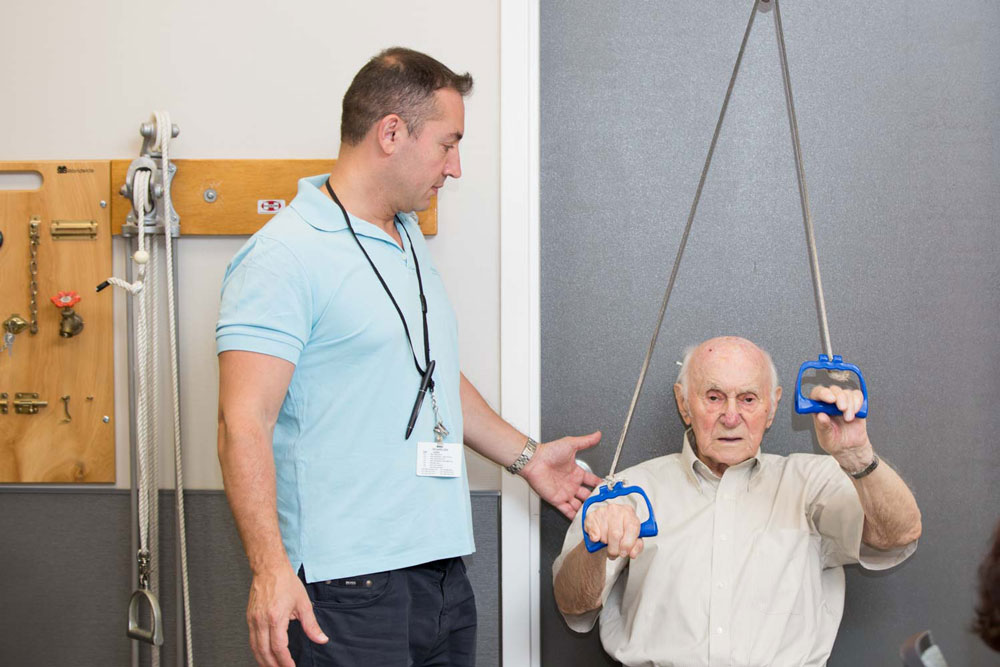Regain Energy After Surgery – Why Am I So Exhausted?
After having surgery, a period of recovery is expected, during which you may feel more tired than usual. Unfortunately, there is no set timeline for how long it takes to regain energy after surgery. The reason for the exhaustion varies, depending on the surgery type, your lifestyle beforehand, and the recovery process.
To combat post-surgical fatigue, your doctor will likely recommend rehab therapies, which involve exercises, physical therapy, and other rehab options to help you regain strength and reduce post-operative fatigue. These programs are customizable to match the needs of everyone for the quickest, safest recovery possible. To reduce exhaustion, the first step is learning why it occurs, which we’ll discuss below.

Why am I so tired months after surgery?
You must understand that your body experiences some changes after surgery, and it might need time to adapt to them. The changes depend on the type of surgery though. After minor surgery, you’ll likely feel less fatigue within a few days or weeks. If you are an elderly and/or have had major surgery, it can have lingering effects, causing exhaustion months after your procedure. Though such issues won’t affect everyone, some factors lengthen your recovery time.
- Tissue recovery – During surgery, your body undergoes various incisions and other traumatic events. It takes time for those injuries to heal, which requires your body to use up its nutrient stores. When this occurs, your body feels more tired than usual, requiring an influx of nutrients to regain strength.
- Lack of nutrients – Depending on your lifestyle before surgery, you may lack the nutrients needed for a speedy recovery. In most cases, fasting is also required before the procedure, reducing nutrient levels even more.
- Blood loss – During surgery, you’ll suffer blood loss, sometimes at high levels, resulting in anemia. To regain energy after surgery, high levels of iron must be introduced to the blood to encourage hemoglobin production.
- Depression – Medical concerns often cause individuals to consider their mortality, which leads to depression. Depressive states may result in altered sleep habits, improper diet, and slower healing. Infections become more likely, which slows healing and reduces energy levels even more.
- Pain and medication – High pain levels can disrupt sleep and make rehab therapies hard to complete. Unfortunately, though meds are crucial to reduce severe pain, they may cause drowsiness, especially when overused.
How To Regain Energy After Surgery
Fatigue after surgery is common, especially after major surgery. It can last several days or weeks, though measures can be taken to reduce exhaustion. One crucial aspect is proper sleep habits, including sleeping through the night and avoiding naps during the day when possible.
Eating well-balanced meals ensures you’ll gain the nutrients needed to keep your energy level high. Hydration is also crucial, so drink plenty of water throughout the day, but avoid caffeine and alcohol during recovery.
Though physical therapy may be recommended to regain energy after surgery, avoid pushing yourself too hard. Doing so slows your recovery, so follow your rehab therapist’s advice. Using your pain meds only when necessary is vital since too much can increase fatigue.
Can anesthesia cause long-term fatigue?
Anesthesia rarely causes long-term fatigue after surgical procedures. It usually wears off within 24 to 48 hours, though in some cases, grogginess can last for a few more days. So, it shouldn’t affect how long it takes to regain energy after surgery.
Resources:
https://www.hss.edu/conditions_nutrition-for-healing.asp
https://findanexpert.unimelb.edu.au/news/5575-health-check–why-can-you-feel-groggy-days-after-an-operation%3F
https://medlineplus.gov/anemia.html
https://www.ncbi.nlm.nih.gov/pmc/articles/PMC4736276/
This article is for educational and informational purpose only and does not substitute for professional medical advice. For any questions about your own health condition, speak to a qualified physician or healthcare provider.







Leave A Comment